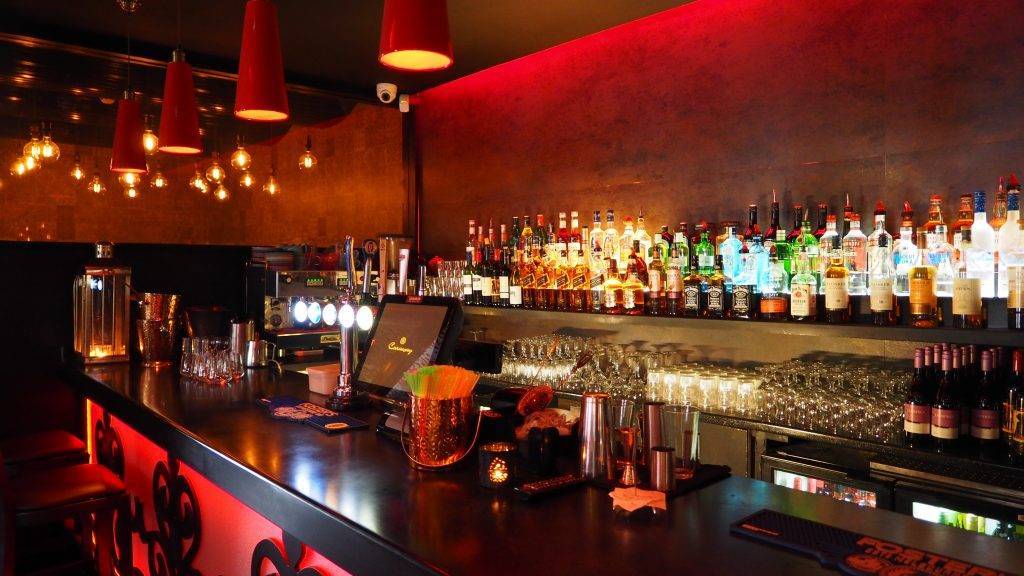Liquor Store Loans: Maximizing Profits for Your Liquor Store or Liquor Distribution Business through Inventory Financing
Get Funded Now
Applying is free and will not affect your credit score
To enhance the profitability of your liquor store or liquor distribution business, securing financing for large inventory purchases is essential. Traditional funding options like bank loans may not be suitable for seasonal capital needs. When you anticipate quick inventory turnover, it’s wise to explore short-term financing solutions. Traditional lenders often have lengthy application processes and complex documentation requirements, making them less ideal for short-term capital needs.
Considering Repayment Terms in Financing Options
When evaluating financing options for inventory purchases, it’s crucial to assess the repayment terms. Repayment flexibility can significantly impact the financial feasibility of various financing solutions.
Understanding Consumer Preferences in the Alcohol Industry

To optimize your inventory selection, it’s essential to be aware of consumer preferences in the alcohol industry. Some of the most popular alcoholic beverages include wine, spirits, beer, and flavored malt beverages. In recent years, Americans have consumed more wine than any other country, surpassing even France. Whiskey consumption has also seen significant growth, with over 76 million cases sold in 2021. The market for hard seltzers has experienced explosive growth, and ready-to-drink beverages and flavored seltzer products are expected to lead the trend during the holiday season.
It’s important to note that seasonal spirits such as crème liqueurs and champagne are in high demand during the year-end holidays. November and December are typically the busiest months for alcohol sales. To meet the increased demand during this period, having ample inventory is crucial.
Inventory Costs and Other Considerations for Liquor Store Owners
In addition to inventory costs, liquor stores have other expenses to consider. For instance, liquor stores that offer spirits and beer often require large refrigerated coolers, which can significantly impact sales year-round. If you’re opening a new liquor store, expanding your existing store, or upgrading your equipment, equipment financing can be a valuable option for obtaining capital to upgrade your coolers.
Changing Trends in Distribution and Delivery
The rise of online platforms like Drizly has made purchasing alcohol online more accessible and convenient. Liquor stores should consider adapting to these changing trends to remain competitive. Investing in delivery vehicles and leasing them can be a wise choice, especially if your liquor store offers delivery services. Leasing allows you to conserve working capital while expanding your delivery capabilities.
Diversifying Your Offerings to Maximize Cash Flow
To drive cash flow and cater to evolving consumer preferences, liquor stores can consider diversifying their product offerings. This includes including non-alcoholic alternatives, wines, whiskeys, sake, high-end premium spirits, super-premium spirits, and craft beers. By expanding your range of products, you can attract a broader customer base and increase sales.
Financing Options for Liquor Stores in 2022
Here are some financing options that liquor stores may qualify for:

Merchant Cash Advance
Ideal for businesses with significant credit card sales, a merchant cash advance provides a lump sum upfront, with repayment based on a fixed percentage of future credit card sales. It’s a flexible option suitable for liquor store owners with subpar credit scores and customers who primarily use credit and debit cards. However, merchant cash advances often come with high-interest rates.
Business Line of Credit
This option provides a revolving line of credit that liquor store owners can draw from and repay at any time. It offers flexibility in accessing funds as needed, and you only pay interest on the amount borrowed. Business lines of credit typically have lower fees than other financing options, and they are suitable for working capital needs. Interest rates on business lines of credit can start at 5%.
Remember to carefully assess your financing needs and explore the most suitable option based on your circumstances.
Adapting to Market Trends and Maximizing Profitability
To thrive in a competitive industry, liquor stores must adapt to market trends and find ways to differentiate themselves. By offering trendy beverages, facilitating home delivery, and maintaining strong relationships with local brewers, liquor stores can drive revenue and compete effectively against larger retailers.

Final Thoughts
If you require financing assistance for your liquor store, it’s important to know that there are viable options available. Merchant cash advances and business lines of credit are popular choices worth considering. Additionally, staying informed about consumer preferences and industry trends will help you optimize inventory selection and drive profitability. By carefully assessing your needs and repayment capabilities, you can secure financing that aligns with your goals and sets your liquor store up for success.
For More Details Please feel free to Contact
